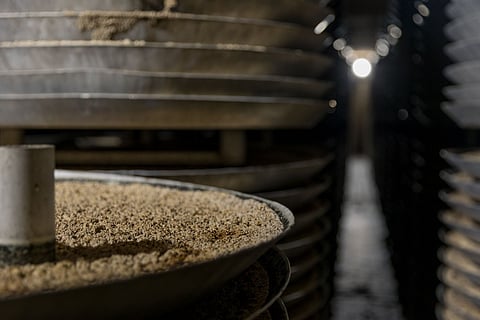

MycoFence® mycelium feed ingredient.
Photo: Citribel / Onda.
Belgium-based biotech firm Citribel and Canadian aquaculture research organization Onda have announced what they describe as "groundbreaking findings" on the use of a new mycelium feed ingredient for salmon, compared to commercial yeast.
The research study, which was conducted by Onda and published in the latest issue of the scientific journal Aquaculture, showed that the mycelium feed ingredient MycoFence® significantly boosts survival rates of Atlantic salmon following infections with the pathogens Tenacibaculum maritimum and Moritella viscosa.
The trial involved feeding Atlantic salmon with varying concentrations of MycoFence®, an ingredient developed by Citribel, which contains β-glucans derived from Aspergillus niger.
Results showed a substantial reduction in mortality rates for salmon on higher MycoFence® concentrations compared to a control group without β-glucan supplementation. The authors say that this indicates a potent immunostimulatory effect of their product, that could decrease the reliance on antibiotics in aquaculture.
According to the study authors, the finding "highlights the relevance of investigating non-yeast sources of β-glucan as immunomodulators and reinforces the potential of A. niger β-glucan for disease prevention to the salmon industry".
Onda, based in important Prince Edward Island, was formerly the Center for Aquaculture Technologies Canada. In December 2024, the contract research organization, which specialises in aquaculture research and trials, announced it was partnering with the Canola Council of Canada to examine the potential of Canadian canola-based feed meal as a sustainable alternative ingredient for aquaculture feed.
Citribel, based in Tienen, Belgium, is a biotech company specializing in the production of citric acid and mycelium, and uses advanced technology to transform fungal biomass into high-value ingredients for various industries.
